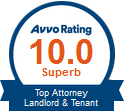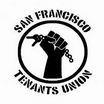General Overview
Elke & Merchant LLP has experience with repair issues in Bay Area rental units. Under California state law, all renters have the basic right to live in a safe and sanitary home. This is generally known as the “warranty of habitability.” It is an automatic component of every residential tenancy and can never be waived or ignored. In addition, housing is also considered “substandard” if it endangers the life, limb, health, property, safety or welfare of either the public or its occupants. Under state law, a home is considered “uninhabitable” or “substandard” for many reasons, including, but not limited to:
- Inadequate heat
- Faulty weather protection
- Broken windows or doors
- Unsanitary bathrooms
- Structural hazards such as deteriorated foundation or buckled walls
- Inadequate plumbing and gas
- Lack of hot and cold water under the control of the tenant
- Rodent or vermin infestations
- Lack of natural ventilation and light
- Unsafe or inadequate electricity
- Unsanitary premises containing debris, filth and garbage.
- Improper trash receptacles
- Lack of necessary maintenance
- Floors, stairways and railings not in good working order
In addition to state law, almost all cities and counties have local building codes and health regulations. By their very nature, these local rules vary from city to city. For example, state law remains relatively vague regarding what constitutes “adequate heat.” By contrast, the San Francisco Housing Code explicitly requires a temperature of “68 degrees Fahrenheit in all habitable rooms, excluding bathrooms and hallways.” Moreover, this level of heat must be provided a minimum of 13 hours a day, from 5 AM to 11 AM and also from 3 PM to 10 PM.
What to do if you need repairs
Inform your Landlord in Writing
If you have any repair issue in your rented home, it is critical that you inform your landlord of the issue in writing. The form of the written communication does not matter. Indeed, often text messages and emails are “better” than US Mail because it is harder for a landlord to claim she never received the electronic communication. This can even be true of certified mail, since dishonest landlords often simply refuse to go to the post office to receive the letter. Ideally, a tenant would use multiple forms of communication – texts, emails, letters and phone calls – to inform a landlord of any habitability issue.
Letting your landlord know about repair issues is critical because a landlord is not required to repair problems of which he is unaware. Moreover, a landlord is not allowed to conduct “inspections” of your unit without your permission. A landlord simply does not have the right to “routine inspections” under the law. Because of this, a landlord can often establish that she had no knowledge of any habitability issues unless a tenant repeatedly informs her in writing.
Document Everything
Although obvious, it is exceptionally important to document all repair issues you have in your unit and all communications you have with your landlord. Photos and videos are great. Also make sure to save all text messages, emails and voicemail messages from your landlord. Finally, if any friends or neighbors also witnessed the problems make sure you have their current contact information.
How to enforce your rights
If you have thoroughly documented your repair issues and have given written notice to you landlord, but he still refuses to make the repair, you have a few options:
Department of Building Inspection (DBI)
All major cities have Departments of Building Inspection (DBI) that enforce local building regulations. Anyone can anonymously contact DBI and request an inspection of a residential property. After a request for inspection is received, DBI will schedule a time for an inspector to meet with the “complainant” and inspect the property. Tenants should make sure that they are present when the inspector arrives, indicate to the inspector every repair and habitability issue in the home, and get the inspector’s name.
Assuming the inspector finds code violations during the inspection, DBI will issue a Notice of Violation to the landlord that orders the landlord to correct the problems. Generally, DBI will give a landlord 30 days to correct any issues. If the landlord has not corrected all the violations within 35 days of the citation, the landlord may be prohibited from demanding rent, collecting rent, attempting to increase rent, or evicting for non-payment.
WARNING: Be very, VERY cautious calling DBI if you suspect you might live in an illegal unit. Under current law, “illegal units” are, by definition, illegal. If a DBI inspector is called to an illegal unit, the inspector may “red-tag” the entire unit and require that the landlord remove the unit from the rental market or make it legal. This means that the tenant may be evicted. Because of this, it is almost never a good idea for a tenant living in an illegal unit to call DBI. It should be noted however, that at least in San Francisco, this could be changing. Given the acute housing shortage, both the Mayor and the Board of Supervisors support “legalizing” illegal units.
Rent Board Petition
Tenants residing in rent control jurisdictions can file a petition with their local Rent Board claiming a “Decrease In Services.” Such a petition demands that a tenant’s monthly rent be decreased to compensate for the reduced habitability of the rental unit. Rent Boards can also help compel a landlord to make repairs by ordering additional rent reductions to continue into the future until the landlord makes the requisite repairs.
Note: Unlike with DBI, rent boards generally do not care if you live in an illegal unit and will not “report” that fact to DBI. Because of this, if you live in an illegal unit in a rent-controlled jurisdiction, petitioning the Rent Board is a safe option. This is also the best option if you have relatively minor repair issues that are not sufficiently egregious to be cited by DBI or if your landlord has unilaterally removed or failed to replace “housing services” such as laundry facilities, parking or elevators.
Repair and Deduct
A tenant can make repairs herself (or hire someone else to do the repair) and deduct the cost from the rent. A tenant can never deduct more that one month’s rent, and can never “repair and deduct” more than twice within any twelve-month period.
Despite the legal right to repair and deduct, it is almost never the best option. As long as a tenant pays rent in full and on-time, she has a number of legal rights. This is especially true in a rent-controlled jurisdiction such as San Francisco, Oakland, or Berkeley. As soon as a tenant fails to pay her rent in full, a landlord can attempt to evict for non-payment. While the “repair and deduct” constitutes a valid defense, it is still incumbent upon the tenant to demonstrate the need for the repair, the knowledge of the landlord, and the landlord’s repeated refusal to make the repair. For all these reasons, repair and deduct should only be attempted after everything else has failed and only after a tenant has gathered thorough and unquestionable documentation.













